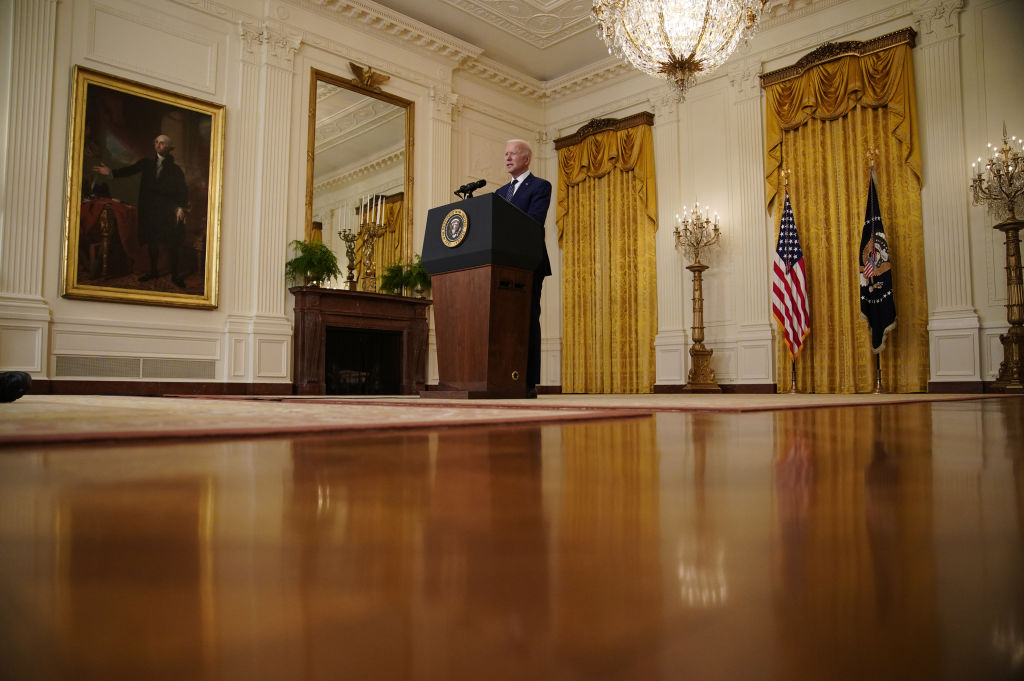
The scenery of Boao Town, south China's Hainan Province, April 8, 2021. /Xinhua
The scenery of Boao Town, south China's Hainan Province, April 8, 2021. /Xinhua
Editor's note: Josef Gregory Mahoney is a professor of politics at East China Normal University. The article reflects the author's opinions, and not necessarily the views of CGTN.
When the Boao Forum for Asia (BFA) was initiated 20 years ago in 2001, the world was on the precipice of a new period of accelerated change. That same year, China joined the World Trade Organization and saw its development efforts take a major step forward, helping propel China to its position today as the largest economic power in Asia and the second largest in the world.
Conversely, the United States suffered the attacks of 9/11, and fell victim to its own worst instincts by declaring a new world war of sorts, the "War on Terror," leading to misguided and largely unilateral adventurism in Central Asia, the Middle East and even Africa. Such are the vicissitudes of recalcitrant hegemony in a post-imperial world.
It's impossible to encapsulate in a brief paragraph of changes the world has experienced since 2001; it's even impossible to describe succinctly the changes that have occurred during the past year. The global pandemic exposed the faultlines of many older multilateral organizations as well as the incapacity of governance in many leading Western countries.
Indeed, the United States and several key European states are still struggling to contain COVID-19 and restart their economies, while China and key East and Southeast Asian nations have achieved much better results.
Two Chinese idioms help describe these changes and their contrasts. The first is "stuck in the old ways" (故步自封), which conveys succinctly how one loses the pace and becomes stuck in time and increasingly self-isolated. The second is "struggling to get ahead" (争先恐后), and which unsurprisingly, when compared with the first, has become much more commonly heard expression throughout China's reform and opening up period and the last two decades in particular.
In fact, if we view these idioms in a global context, the first seems apt for the West and the United States above all, while the second fits the opposite dynamic occurring in Asia and especially China.
This is the frame through which the BFA should be viewed, not simply as a two-decade effort to promote new multilateralism, but to do so in ways that represent those countries in Asia that have not only moved past their own historical experiences with Western domination, they are now transcending the legacies of the same through new organizations and initiatives that are definitively not stuck in the old ways.
As four years of Donald Trump proved, as a year of COVID-19 has proven, the world cannot count on the leadership or largesse of Washington or Western countries, if it ever could. The old ways, and especially the new old ways of the Trump Administration ('first as tragedy, second as farce,' as Karl Marx once quipped), serve old interests and failed paradigms, and it's not an overstatement to suggest that these appear to be collapsing in a dustheap, just shy the dustbin of history.
To be sure, there are many in the West today who are hopeful that the election of Joe Biden will mark a reversal of fortunes. Of course, roughly half the voters in the U.S. itself believe that reversal is a dark development.
Nevertheless, after Trump's quixotic "America first" approach to "make America great again," Biden has promised "America's back" with reinvigorated multilateralism and American global leadership—as though these none of these assertions are suffused with internal contradictions.

U.S. President Joe Biden speaks in the East Room of the White House in Washington, D.C., U.S., April 15, 2021. /Getty
U.S. President Joe Biden speaks in the East Room of the White House in Washington, D.C., U.S., April 15, 2021. /Getty
Likewise, Biden's promise of a massive national redevelopment scheme and commitment to fighting global climate change, as though these two also have no conflict or contradiction between them. Additionally, Biden aims to out-compete China and enact a new containment strategy, or so it seems, despite the fact that so many previous efforts along these lines have failed.
One supposes Biden's attempt to reassert global leadership for fighting climate change, which his predecessor not only abandoned but denied was a problem, represents a measure of progress, however substantial or long-lasting it proves to be.
While these developments must be regarded positively, and while some rather remarkably view Biden as a savior in contrast with some of the radical Trumpists who compared their hero with the Messiah, the world is not yet saved.
While Biden has rejoined the Paris Agreement and promoted the goal of carbon neutrality in the United States by 2050, the ability of the U.S. to sustain its international commitments due to intense political polarization and above all limited capacity for national-level governance in domestic affairs, gives pause to many around the world.
If Biden wants a global climate summit, and if combating climate change is the White House's politically palatable platform for cooperating presently with China, then such developments should be encouraged. But a lot of new-old talk from Washington and promises of change not only tend to run contrary with the broader global trends at work over the past two decades, they also tend to conflict with them.
In contrast, if we examine China's ongoing green development efforts, its increasing political and economic commitments to sustainable green growth, and if we look at the fact that Chinese development at home and now abroad through the Belt and Road Initiative are far more tangible than Washington rhetoric, then we might find that the most globally significant climate change policymaking is occurring in Beijing, and that these discussions will echo in BFA.
As Asia continues to move past the pandemic and past the old ways of thinking that have not only failed increasingly in times of crises, they are likewise substantially responsible for many of the same.
(If you want to contribute and have specific expertise, please contact us at opinions@cgtn.com.)

